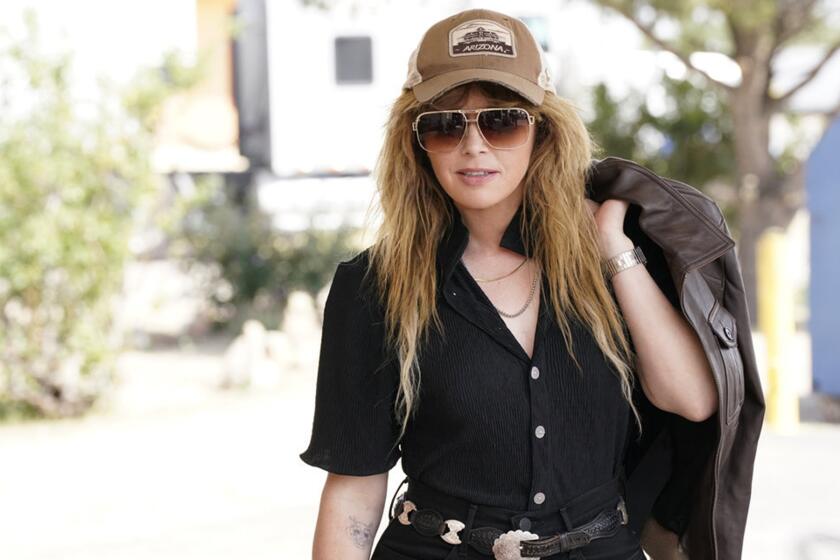
Natasha Lyonne is laying her (credit) cards on the table, along with her Nicorette and Tea Tree Therapy mint toothpicks. We’re sitting in the back house of the Studio City office she shares with producing partner Maya Rudolph, and this emptying of pockets came as a response to talk of her moving, part time at least, to L.A.
Lyonne holds up her driver’s license, emphasizing it was issued by the state of New York, and when I study the photo for a beat too long, she points at the picture and says, “Just because I look like s— right now doesn’t mean that’s not what I look like, Glenn. Do I come out on tour with you and say, ‘Hey, Mr. Danzig, how come you don’t always look like you do when you’re on stage?’ Do you hear this, Root Beer?”
Root Beer, Lyonne’s longtime Maltipoo BFF, barks, sounding a note of disapproval. Lyonne and I met about 20 minutes ago and from the moment we laid eyes on each other, she’s been calling me Glenn Danzig, though there’s precious little overlap between the heavy metal icon and myself. But Lyonne likes to free-associate. Thoughts tumble forth, heavy on references to ‘70s movies, Elliott Gould, Bob Fosse, John Cassavetes and possibly becoming a cyborg one day. That she quit smoking for the first time in her life a few weeks ago isn’t necessarily helping her focus, she notes.
“It’s confusing, you know what I mean?” Lyonne says, comparing giving up nicotine to kicking heroin many years ago. “It seems like the stakes are much lower and yet arguably for your health, they might be even higher now.
Natasha Lyonne stars as an accidental detective in a Peacock series, created by Rian Johnson, that takes cues from ‘Columbo’ and ‘The Fugitive.’
“I should become an addiction specialist,” she continues. “I think I am. Like when you’re a junkie, you’re kicking dope all the time, so it’s an ongoing nightmare. Like, I strongly don’t recommend heroin. There’s one takeaway you can get from this conversation. And quitting cigarettes is weird as hell. But it seemed like a good window to try. On set, I behave like a young Bob Fosse. And when I say ‘young,’ I mean ‘middle-aged.’ I mean ‘almost dead’ Bob Fosse.” She pauses. “Listen, I could start up again at any time. But I’m not getting any younger, and I’d like to still be making ‘Poker Face’ when I’m old and just sort of shuffling around, you know? So why not try?”
Who doesn’t want to see Lyonne making “Poker Face” well into her golden years? Every generation needs its version of Peter Falk’s Lt. Columbo, and Lyonne staked an early claim to that title with the first season of her terrific mystery-thriller series, which debuted earlier this year on Peacock. Lyonne plays Charlie Cale, a woman possessing a superpower — she always knows when people are lying. Circumstances force her to move from town to town where she uses her intuition to solve crimes. Each self-contained episode delivers a new homicide (you really don’t want Charlie showing up where you live), along with a different set of guest stars — the likes of Nick Nolte, Chloë Sevigny, Hong Chau and Joseph Gordon-Levitt among them.
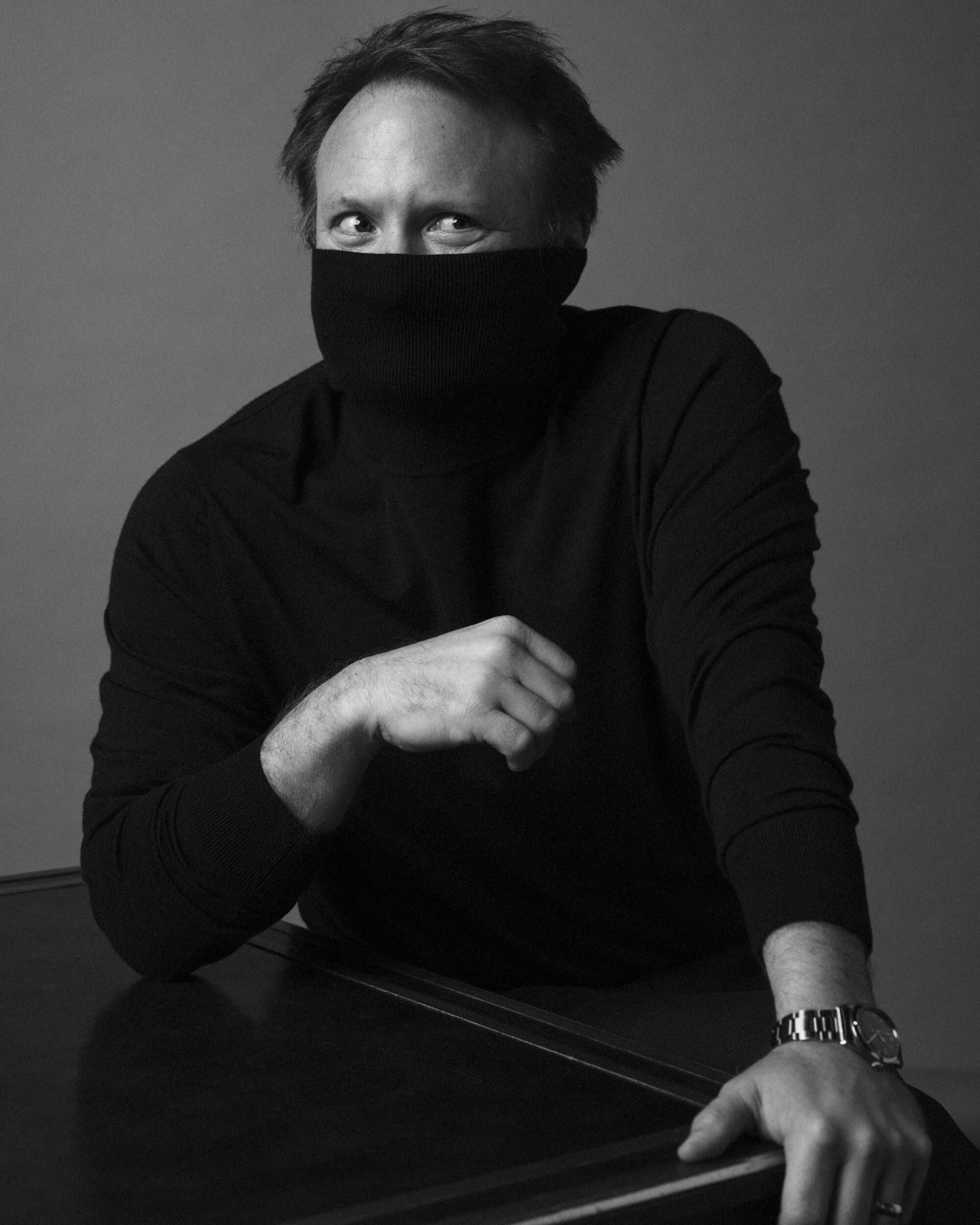
Rian Johnson, no stranger to mysteries with his “Knives Out” movies, created “Poker Face” as a showcase for Lyonne. The two met through Johnson’s wife, film historian Karina Longworth. Lyonne loves Longworth’s “You Must Remember This” podcast and, years ago, wanted to adapt the episode focused on Lena Horne and Paul Robeson and the Hollywood blacklist into a project. It never got off the ground, but the friendship endured, leading to her connection with Johnson. He had been toying with the idea of a case-of-the-week TV show, and in Lyonne, he believed he had an actor that audiences would love to hang with on a weekly basis.
“You need to find somebody who genuinely has that spark of charisma on screen and that’s a rare coin,” Johnson says by phone, mentioning Falk and James Garner in “The Rockford Files.” “When I saw Natasha in [the Netflix series] ‘Russian Doll,’ it clicked for me. That effortless charisma just comes across on the screen.
“I think the way two people click creatively has as much to do with how they’re different as how they’re the same,” Johnson continues. “And our temperaments fall into a peanut butter and chocolate situation. She’s not the person you see on screen, but her brain operates at a much higher frequency than mine.”
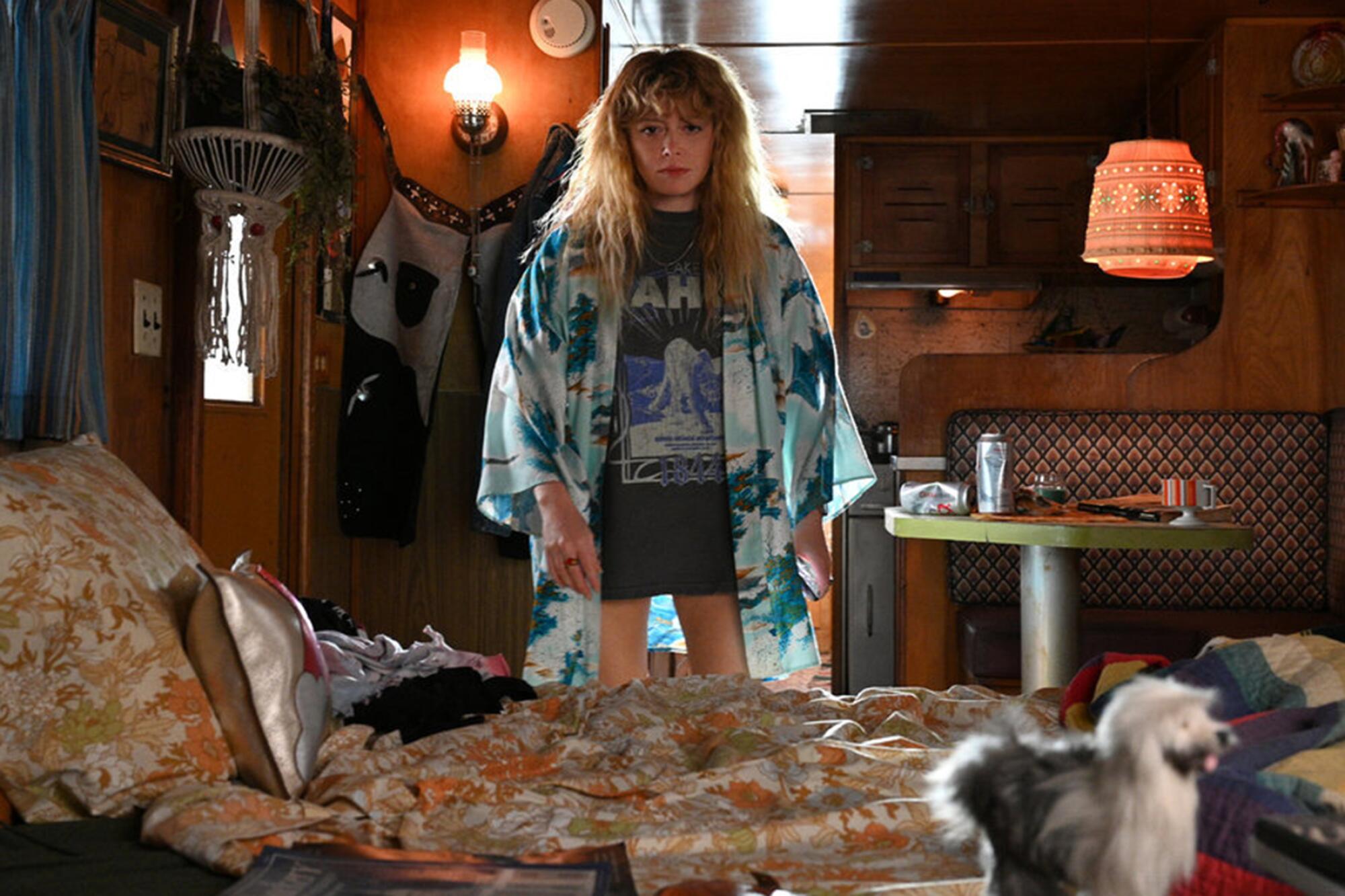
Is it a frequency that only Root Beer can hear? Possibly. Johnson says he could only watch and marvel when Lyonne directed and starred in the standout “Poker Face” episode “The Orpheus Syndrome,” a macabre slice of horror that doubled as a love letter to Oscar-winning VFX artist Phil Tippett and also featured Lyonne running around in a horse costume. Sometimes when actors direct themselves, they’ll lament the multitasking and perhaps scale back their screen time. Lyonne, Johnson says, embraced the overload because “her brain needs that.”
“She’s into puzzles and word games and she’ll do, like, eight of them at once,” Johnson says. “She has an endless capacity to keep multiple plates spinning. Not even capacity. It’s a need. I heard David Mamet say this, that writers write for the same reason beavers cut wood — to stop their teeth from aching. That’s Natasha and life.”
When I ask Lyonne what she’s currently working on — and remember, this is what she calls her down time — she says she’s writing a few TV shows, writing some movies with friends, reworking a movie script she finished some time ago and writing a book. And in the past half-hour, she suggested that we team up with Root Beer to invent a better herbal cigarette because “those honeysuckle things are just the worst.”
Lyonne also just turned 44, and explains that she’s dealing with a midlife crisis by embracing a few new hobbies. She has taken up surfing, for one. Pressed for other pastimes, Lyonne removes her black baseball cap, runs her hands through her red haystack of hair and laughs.
“That’s really it. I’m a surfer. I’m a writer. I don’t leave the house. I play the Spelling Bee, the crossword, the Wordle. I read books. I swim laps in my pool. You get the idea. I had a good run. And I’m grateful to go out on a high note.” She starts to laugh. “This isn’t me retiring. But I just feel like I’ve left my young life and this is my entree into midlife. I feel like I did well by my youth. I didn’t have any moves left. There were no stones left unturned in my youth.”
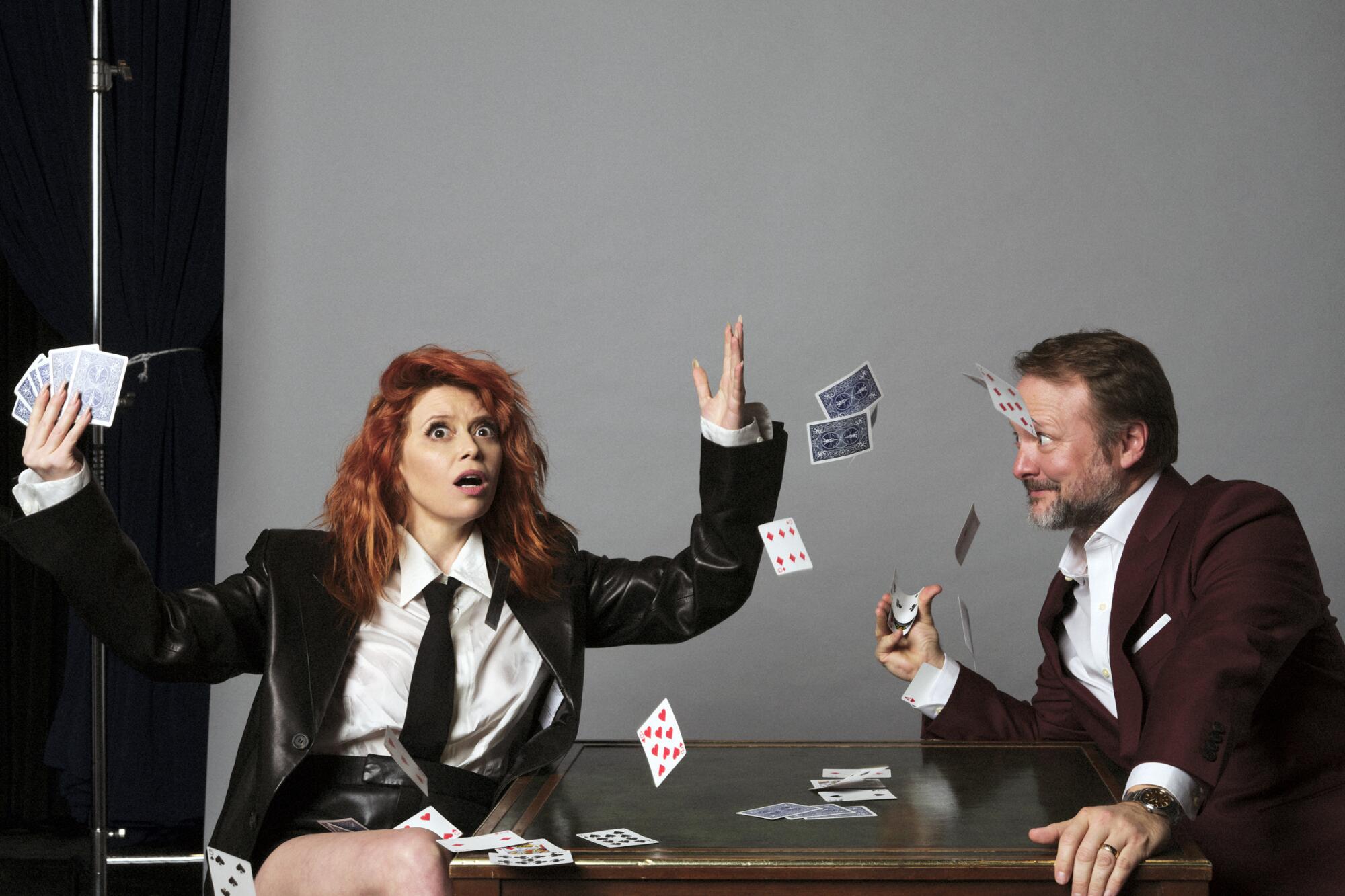
Lyonne is now hoping to enter what she calls her “Penny Marshall, Sydney Pollack phase,” meaning she’d mostly direct and write (as she did, as well as star, on “Russian Doll”) and answer the phone when someone like Johnson calls asking her to act. (Yes, a second season of “Poker Face” is in the works.) She’s not sure how long she’ll stay in L.A., saying that she’s “sort of trying on T-shirts and seeing what it feels like to have the sun shine on you.”
“This is my version of a T-shirt,” Lyonne says, pointing at her short-sleeve cashmere sweater. She shows off her shoes. They’re loafers. “This is my L.A. outfit right now. I’m super L.A.”
That said, she and Root Beer need to head back home to Hollywood to talk to a landscaper about the area around the swimming pool. Lyonne again emphasizes that life here still feels transitory. Outside of a bed and some kettlebell weights, a giant “Columbo” poster (a gift from Johnson) is the only substantial piece in her house.
“I’m L.A. the way that Elliott Gould and Albert Brooks in the ‘70s were L.A.,” Lyonne says, packing up. She recalls another lifetime when she was a teenager sitting in the back row at the New Beverly, drinking a 40 in a brown bag and watching Cassavetes movies.
“Life, this whole set-up, is so absurdist,” Lyonne says. “It’s just so weird that it was so circuitous to get here. In a strange way I can see now from a bird’s eye view that I needed all that life experience to actually have something to say on the other side of it.
“That’s why I love playing Charlie,” she continues, circling back to her “Poker Face” role. “She makes a home for herself wherever she goes. I will forever identify with the experience of the outsider and wanting to make all the orphans feel safe together. I love that she’s fighting for the little guy existing on society’s fringes. I so relate to that. It makes me happy to put that energy out there.”
We part ways, yesterday’s ashtrays gathering dust on the patio.
Editor’s note: This interview and photo shoot took place before the ongoing writers’ strike took effect.
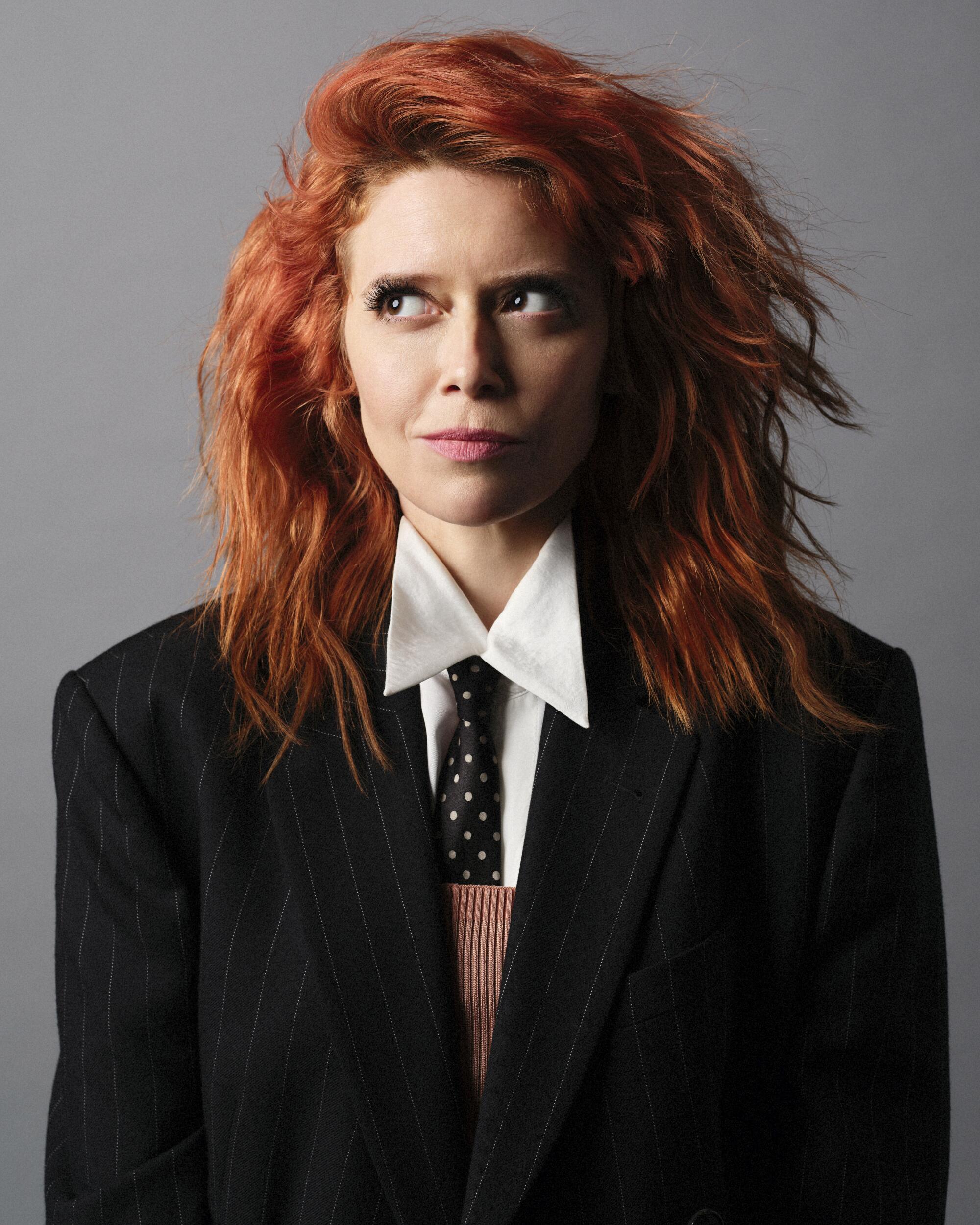
More to Read
From the Oscars to the Emmys.
Get the Envelope newsletter for exclusive awards season coverage, behind-the-scenes stories from the Envelope podcast and columnist Glenn Whipp’s must-read analysis.
You may occasionally receive promotional content from the Los Angeles Times.
